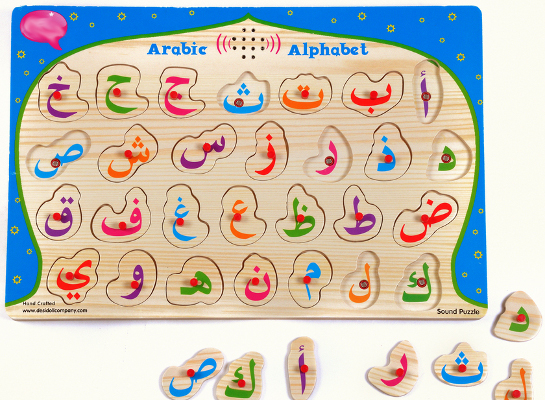
A mother is the most favourably positioned person who can direct and determine the role and character of her children. Speaking about her role of responsibility as the guide and overseer of her children, our Nabi (Sallallāhu ‘Alayhi Wasallam) said:
“And, the woman is the Shepherdess of the home of her husband and of his children. All of you will be questioned about their flock”.
Many famous men of Islām attained wilāyat (sainthood) at the hands of their mothers. As a result of the sublime maternal efforts expended in the moral and spiritual training of children, they attained the lofty ranks of spiritual elevation.
The religious instruction (Deeni Tā’leem) of a Muslim child commences from the day it has entered into this ephemeral world. The Athān and Iqāmah are proclaimed in the ears of the infant, arousing in its mind the Pledge of Imān which was taken from it long before it or its parents were created.
While most mothers nowadays believe that their maternal duties are confined to feeding and clothing their children, Islām expects and commands much more – of greater importance than physical care, is the spiritual care of the children. It is her incumbent and sacred duty to direct her full attention towards the Deeni, spiritual and moral training of her children.
The love which most parents nowadays show their children is no true love. Such love is in fact a fatal poison. A love which leads children to Jahannum is cruelty and injustice of the highest kind. Parents should submit and bend their love in whatever direction the Shariāh points.
Children are a wonderful treasure and an amānat – a sacred trust which dare not be abused. Parents who abuse this amānat by failing to carry out their parental duties and obligations in the way Islām requires, are among the worst criminals and perpetrators of treachery, for they pave the way for the future ruin of their own offspring.
Some important pieces of advice with regard to rearing and training children will be enumerated here.
- Remember well that habits acquired in childhood are enduring. Good or bad traits and attributes acquired by the child will remain with him/her lifelong. It is, therefore, imperative to maintain a diligent eye on the habits which a child picks up and develops in his character.
- Never frighten a child. Some mothers, in order to induce obedience in the child, scare the child by speaking of ghosts, etc. This is exceptionally bad. The child will grow up with a weak heart. Instead of inculcating courage, parents very ignorantly induce cowardice in their children.
- Have fixed times for their eating. Do not spoil their habits and their health with irregular eating habits.
- Let them use a miswāk from an early age. Let them wash their mouths after everything they eat, even after having drunk milk.
- Teach them to wash their hands before and after meals.
- Teach children all the Islāmic etiquettes of eating, drinking, sleeping, wearing garments, entering and leaving the toilet, etc.
- When the child is able to talk, teach it first the Name of Allāh Ta’ala. Even long before it can talk, parents should recite Qur’ānic verses, the Names of Allāh and the Kalimāh to the child. The infant’s mind is receptive and it retains what it sees and hears.
- Parents should not become nude in the presence of even a six-month baby.
- Do not create in the child the love for luxury and adornment. Styles and fashions should be banished. Imbue in them simplicity.
- Now and then clothe children with patched garments even if you are wealthy.
- Until a girl has not attained the age of puberty, do not adorn her with jewellery. The love for adornment and luxury will be spawned in her from childhood.
- Inculcate generosity in children. Let them give food, etc. with their own hands to the poor.
- Share things among brothers and sisters. Let the eldest of the children arrange the division under your supervision.
- Always speak derisively of over-eating to them.
- Do not succumb to the obstinacy (stubbornness) of children. To do so is fatal for their moral and spiritual development.
- Prevent them from screaming and speaking at the top of their voices.
- Never allow them to mix with other children. Brothers and sisters should play together within the home confines where their statements and actions could be kept under constant parental observation and supervision.
- Never allow them to wander around the neighbourhood.
- The most destructive influence is undoubtedly television. Think of the future of your children. Think of their success and salvation in the Hereafter and for their sake never introduce this evil into the home.
- Do not give them toys which are in the form of people or animals nor toys on which images of people or animals are painted.
- Inculcate aversion in the child for falsehood, greed, envy, pride, hatred and all evil attributes. Monitor the child’s development and constantly advise, admonish and reprimand him/her.
- Do not scream at children. Point out their wrongs and explain the evil as best as you can.
- Never punish the child in a state of anger. If the child requires punishment for a misdemeanour, devise a suitable punishment and administer it after anger has subsided. Do not punish children simply to cool your anger. To do so is an act of injustice.
- Discourage the child from excessive speech and loud laughter.
- Whenever the child commits a misdeed or misbehaves, immediately call him/her to attention.
- Punish the child if he/she fights with another. Do not overlook such misdeeds. Ignoring a child’s perpetration of bullying tactics is tantamount to destroying your child.
- Create in the child the habit of rising early.
- At the age of seven ensure that the child performs Salāt regularly. By the age of ten if he/she has not yet developed the habit of performing Salāt regularly, mete out suitable punishment. It is essential to ingrain the practice of regular and punctual Salāt in the child from an early age.
- Never permit your children to read comics, picture-magazines or other similar western books and magazines which corrupt morals and character.
- Encourage children to read good Islāmic books.
- Parents should gather their children and read to them reliable Islāmic books daily. Stories of the Ambiya and Auliya should be read and told to them.
- Never give children money to waste on un-Islāmic things such as fireworks, etc.
- Do not allow children to play games of gambling such as marbles in which there is winning and losing. Such games are described as ‘maisar’ (gambling) in Islām.
- Reprimand them if they mock or make fun of people – of their looks or their deformities. Explain to them that everyone is the creation of Allāh and all creation is by Allāh’s Will and Wisdom.
- Inculcate in children the habit of doing their own work. Let them tend to their own beds, clothing and room. Teach them to be clean and tidy. Never tire of drawing their attention to their carelessness and untidiness. Untidiness and carelessness are just natural with children. Parents should repeatedly train their children with regard to tidiness and cleanliness without becoming frustrated.
- In matters of this nature, parents should not beat their children. Constant reminding will eventually have the desired effect.
- The child must be taught to refrain from strewing things hither and thither.
- Never permit children to do things surreptitiously or concealing from their superiors. When a child does something secretively, not wanting his/her superiors to know, then it indicates that the child knows it to be wrong. In this way the child will grow up with dishonesty.
- Teach the child to be humble. Do not allow him/her to praise any of his/her possessions.
- When a child accomplishes something good, congratulate him/her and occasionally reward him/her with a prize.
- Parents should not quarrel or argue with one another in the presence of their children.
- The mother should always teach the children to love, fear and respect their father.
- Do not allow your children outside the home after Maghrib. The hadith forbids this. The shayāteen emerge in abundance after Maghrib and children form a desirable target for their mischief.
Source : https://muslimvillage.com
Post Disclaimer | Support Us
Support Us
The sailanmuslim.com web site entirely supported by individual donors and well wishers. If you regularly visit this site and wish to show your appreciation, or if you wish to see further development of sailanmuslim.com, please donate us
IMPORTANT : All content hosted on sailanmuslim.com is solely for non-commercial purposes and with the permission of original copyright holders. Any other use of the hosted content, such as for financial gain, requires express approval from the copyright owners.
 Sri lanka Muslims Web Portal Sri Lanka Muslims News Center
Sri lanka Muslims Web Portal Sri Lanka Muslims News Center
 Donate
Donate


